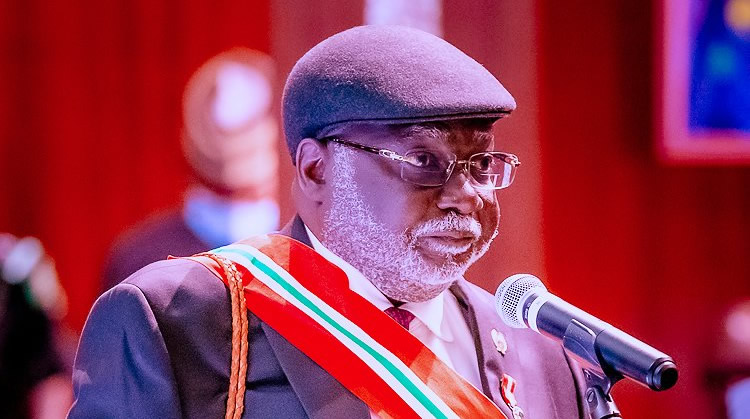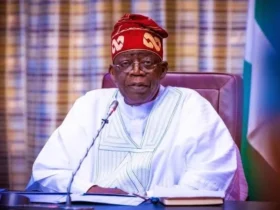Chief Justice of Nigeria (CJN), Justice Kayode Ariwoola has come under scrutiny for alleged judicial corruption and prioritizing family interest over integrity of the judiciary.
The National Judicial Council (NJC), which he chairs, is also been criticized for controversial appointments of judicial officers, and questions have been raised about the integrity of judicial appointments under his leadership.

During his tenure, he appointed his son, Olukayode Ariwoola Jr., as a Federal High Court judge. His son, before his appointment and swearing-in on October 4, 2023, only had a professional background in the legal field as a legal researcher with the NJC,
The nepotism didn’t end there as he appointed his daughter-in-law, Ariwoola Oluwakemi Victoria, as a judge of the FCT High Court.
Additionally, another controversial appointment is that of Adebayo Lateef Ariwoola, who was appointed as the auditor of the NJC.
Adebayo Lateef Ariwoola, confirmed by FIJ as the brother of Chief Justice Olukayode Ariwoola, currently leads the National Judicial Council (NJC) as the head of its audit department.
While the NJC lists Adebayo Ariwoola as the deputy director in charge of its audit department, the date of his appointment is not provided.
However, this means that Adebayo is responsible for overseeing the examination and evaluation of the NJC’s financial statements.
In another move that raised eyebrows, CJN also facilitated the appointment of his nephew Lateef Ganiyu as a justice of the Nigeria Court of Appeal. This further strengthens concerns about nepotism and favouritism within the judicial system.
READ MORE: Disclose NASS Running Costs or Face Legal Action—SERAP Warns Akpabio, Abbas

These appointments have sparked concerns about nepotism within the judiciary. as he prepares to step down as CJN.
Parallel Facts reported that Justice Mabel Segun-Bello, a judge of the Federal Capital Territory (FCT) High Court made strong confirmation that corruption and nepotism in the judicial system have eroded public confidence in the integrity of the judiciary.
According to Segun-Bello, “To become a judge, a judicial officer requires the backing of the presidency or the support of a political party.’s insider.”
Follow the Parallel Facts channel on WhatsApp: https://whatsapp.com/channel/0029VaCQSAoHgZWiDjR3Kn2E








Leave a Reply